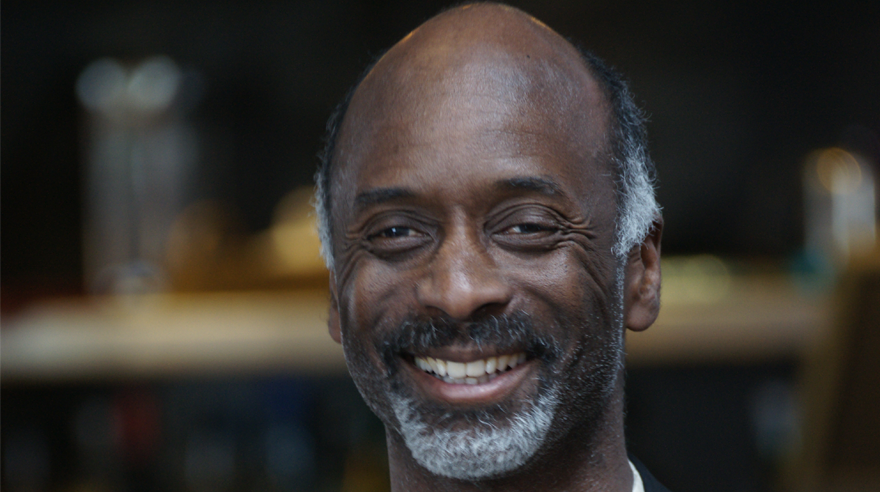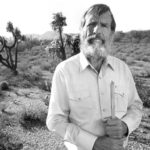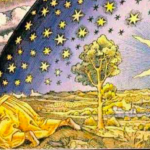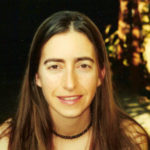Eddy L. Harris is the author of four critically acclaimed books, Mississippi Solo: A River Quest, Native Stranger: A Black American’s Journey into the Heart of Africa
, South of Haunted Dreams: A Memoir
, and Still Life in Harlem: A Memoir
, all of which partake of memoir, travelogue, adventure tale, and cultural reportage. As USA Today puts it, “Eddy L. Harris isn’t your everyday tourist. His travels almost always have a purpose, and that purpose is to write about not only what he sees, but what he feels.” Harris, who has been Writer in Residence at Washington University in St. Louis, is currently living in Paris where he is hard at work on a novel which “attempts to link the good life in Paris with the misfortune of those who have it less good — those who live through the lunacy of racialist thinking, the logical extension of which is extermination and ethnic cleansing.”
How did you get started traveling?
I got started traveling because my father was a traveler. He worked for the government, and in the government there was some goofy system where you can save up your vacation time and your sick-leave time and put them all together and use it whenever you wanted to. He would take off on these long trips for three weeks, four weeks — five weeks, sometimes — and send postcards back. He went off on these wandering trips to Mexico and Canada and who knows where.
Somewhere along the way that sparked my imagination. By the time I was 16 I was on the Greyhound buses in the summertime, traveling around the country by myself. I got a two-month Greyhound pass, and I went everywhere I could. At 18 I did the same thing in Europe with a Eurail pass, and it’s just been more of the same ever since. It’s always been my ambition to be someplace else. Wherever I am, I’m always thinking, where can I go next?
How did you get started writing?
The travel writing was an accident. After college, I was in Paris working for a filmmaker, and in my off-hours I started writing short stories. They were no good, but because of writing short stories, and because of what I was reading I decided to start writing novels. So I wrote five novels, six novels, seven novels that didn’t get published.
The travel writing began because of the trip I took down the Mississippi River in order to kill myself because the novel writing and short story writing wasn’t working. So I’m thinking, I’m going to take this canoe to Minnesota, I’m going to put it in the water, and maybe when that’s over I’ll be dead. And if I’m not dead, maybe I’ll be someone else that I wasn’t when I came into this trip. And, no matter what happens, assuming I’m not really dead, I’ll have something to write about. So I wrote that story just because I took the trip, and then it got published and all of a sudden then I’m a travel writer.
As soon as Mississippi Solo was published, another publisher came to me and said, “What are you doing now?” And as a traveler I was on my way to Africa. She, as a publisher, said, “That’s a great idea — are you going to write about it?” As I writer, I said, “Sure!” So we put the deal together and I became an even deeper travel writer.
Even now, looking back on those books, I don’t look on them as travel, but as an aspect of this interior dream that I’m having all the time. None of my books are a pure and simple account of how I went to this place and what I did there. They are as much interior as they are exterior.
What do you consider your first “break” as a travel writer?
The break was Mississippi Solo. I sent it out to everybody I could think of, sometimes more than once. I got 55 rejection letters, and I put the book away.
Later, I sent a publisher an idea for a book about fishing in Scotland. They didn’t like the idea, but they liked the way I wrote it, and told me to keep them in mind for other projects. So I went back to my desk, dusted off my Mississippi Solo manuscript, sent them the first 40 pages, took off for Guatemala. When I came back, there was a letter saying they liked the 40 pages — so I sent them the rest of the manuscript, took off for Mexico, and when I came back there was a series of letters saying, “Where are you? We want to publish this book.” So I got back to them, and that was the accidental break.
As a traveler and fact/story gatherer, what is your biggest challenge on the road?
The biggest challenge for me is reporting, because I’m not a journalist. I’m not comfortable walking around with a notebook and a pencil. So when I’m talking to somebody, it’s a conversation. It’s never an interview. My biggest problem is how to get this accurately in my memory, so I can then get it on paper. Whether it’s a conversation or a scene or anything else — it’s really how to record it accurately or as accurately as memory can make it without taking notes. Taking notes is taking notes, and you’re not really in the moment of whatever you’re doing. So I always try to capture mentally as much as I possibly can, and then recreate it when I get back to my typewriter.
What is your biggest challenge in the research and writing process?
In a certain way, writing is easy for me. I like it. It’s what I like to do all the time. I wake up in the middle of night — like last night — and I’m thinking, I should be writing something, but I don’t.
And that’s where the challenge is for me, because I have a zillion other distractions that would keep me from just doing what I should be doing. The hardest thing for me is to find this discipline I had when I first began, where I could sit down at the desk at nine in the morning and not leave until three o’clock in the afternoon. But now my mind wanders, other things come into play, people want me to come and do things far away from home. So I no longer have the luxury of being so disciplined as I used to be, and the minute you lose that kind of focus, you’re always struggling to recapture it — you’re spending a lot of mental energy focusing on discipline instead of the writing itself.
Because I travel so much, it’s even harder. And to capture 15 minutes here or an hour here, and another hour later in the day — I can’t do it. I really want to sit down at my desk for a big block of time every day. Sometimes that works, sometimes it doesn’t.
What is the biggest challenge from a business standpoint?
Right now the hardest challenge is getting published. Even at this stage of my career — five books published — it’s all about sales numbers, and my sales figures have not been great. Partly because I don’t write strictly travel, partly because there’s always a racial aspect to it, partly because what would seem to be my natural audience — black American readers — isn’t there for me. I write things in a way that seems to have turned them off early on. My book Native Stranger about Africa was not a romanticized, starry-eyed view of the Motherland; it was what I considered a clear-eyed, accurate picture of a place that I loved, but that I described in gritty fashion. I decried the poverty and I decried the corruption. I hung out the dirty laundry, I guess, and nobody wants you to do that.
So from the appearance of Native Stranger, my black readership has turned away. When I was on tour for the next book, South of Haunted Dreams, I had people come to the bookstore to tell me how much they hated me. In Denver, in Los Angeles, people would come to the bookstore and tell me that they were not coming to buy my book — that they disliked me so much for what I said in the Africa book. It was just the most remarkable thing I ever saw. And so I just never had the constituency that I could have if I’d written in a different way.
So that’s my biggest challenge — having sales numbers to convince a publisher to say, “Ooh, that guy sells books, so let’s go buy his next book.”
My Harlem book just got lost. They published it in November, but it was in the warehouse marked “February” — so when I’m on tour there’s no books. The New York Times has this massive, beautiful review, but there are no books. So I’m on tour trying to sell books that don’t exist. By the time the books actually showed up in bookstores, the buzz was gone. From that book until now is a ten-year period. In ten years, publishers don’t know who you are anymore. So this book I wrote about my father, it’s a beautiful memoir, but nobody in America wants to pick it up. It’s doing marvelously well in France, but nobody in the U.S. wants to pick it up. So that’s my problem. My problem is that every book is my first book.
Have you ever done other work to make ends meet?
Never. I only write.
That’s not quite true. For four years — for one semester a year — I was the writer in residence at Washington University in St. Louis. For a year in 2004-2005 I was a faculty member at a correspondence college called Goucher, in their MFA program. And that’s it. That’s the only moneymaking outside of sitting at my typewriter that I’ve done.
Within writing, one of my bigger challenges has been proposal writing. Whether you’re talking about a magazine piece or a book, somebody wants to see a proposal before you actually do the thing. I am lousy at it. It just doesn’t interest me. I don’t have the mentality to do it, because I don’t know what I’m going to be doing. Normally I have the experience and then I regroup afterwards and try to find out what I did during the writing process.
So the magazine writing work I’ve done has been the magazine coming to be and saying, “Will you write something about Ethiopia?” — or fishing in Utah or something else. Then I can put my own spin on the thing, and I don’t have to adhere to any kind of pre-planned proposal.
What authors or books might you recommend and/or have influenced you?
I read everything I can get my hands on — but writers I can’t cite. I couldn’t tell you who wrote the book that I’m reading right now. I could tell you who wrote the book I finished yesterday, but only because it’s Truman Capote, and he’s a great writer. I’m reading a book called The Arc of Justice right now, and I couldn’t begin to tell you who wrote it. I read a book recently called King Leopold’s Ghost, about the Belgian Congo. I loved it, and I met the writer afterwards, and we talked for a long time, but I couldn’t tell you his name. So I don’t pay attention to who wrote the books I read; I just want to read a good story. Except for people like Faulkner or Steinbeck or James Baldwin or Hemingway — people that filtered into my writerly consciousness.
What advice and/or warnings would you give to someone who is considering going into travel writing?
You need to minimize your desires, in terms of physical acquisition. I don’t want anything. The reason this works for me is that I don’t want anything. I don’t want much stuff. So far it’s been easy to get up and leave and go someplace else because I don’t own anything that I have to haul behind me. Nothing that I’m physically or emotionally attached to.
So my advice is to learn how to make do on as little money as possible, because sometimes there’s just not a lot of money coming. You may get lucky and be like the woman who wrote the Harry Potter series — there is money to be made if you get lucky. But there are a lot of writers who aren’t making very much. If you really want to write, and write only, as opposed to writing while you’re waiting tables or writing while you’re teaching somewhere, just have to cut your expenses and cut your needs and wants.
What is the biggest reward of life as a travel writer?
The best part of being a writer, period, is the freedom. The best part of being a travel writer is the freedom coupled with the travel. To have the freedom to do what you want and go where you want, assuming that you’ve got enough money to do the travel you want to do — that’s the best part for me.





